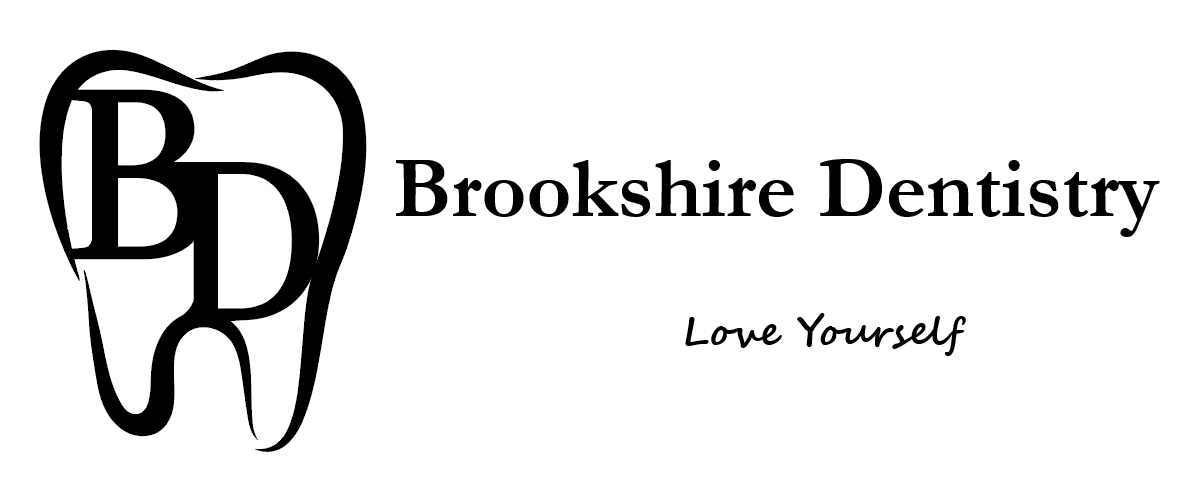What Do I Do If I Damage My Dentures
Dentures are an essential tool for many people who have lost their natural teeth. They restore functionality, aesthetics, and confidence, allowing individuals to enjoy daily activities such as eating and speaking. However, like any other dental appliance, dentures can occasionally become damaged. If you find yourself in this situation, it's important to know the steps to take to address the issue promptly and effectively. At Brookshire Dentistry, located at 1801 Precinct Line Rd., Suite A, Hurst, TX, Dr. Salomeh Tehrani, DDS, MPH, and our dedicated team are here to help you manage and repair damaged dentures with care and expertise. This comprehensive guide will walk you through what to do if you damage your dentures, from immediate steps to professional care and maintenance.
Understanding Denture Damage
Dentures can be damaged in various ways, including:
- Cracks or Chips: Accidental drops or impacts can cause cracks or chips in the denture material.
- Broken Teeth: The teeth on dentures can break or come loose due to hard or sticky foods.
- Loose Fit: Over time, dentures may become loose or uncomfortable, which can be mistaken for damage.
- Worn Out: Dentures can become worn out with age, affecting their fit and function.
- Stains or Discoloration: Regular wear can lead to staining or discoloration, which might affect the appearance of your dentures.
Immediate Steps to Take
If you notice any damage to your dentures, it's crucial to handle the situation with care to avoid worsening the problem. Here are the immediate steps you should take:
Inspect the Damage
Carefully examine the dentures to assess the extent of the damage. Look for cracks, chips, loose teeth, or any changes in the fit. Understanding the nature of the damage will help you explain the issue to your dentist.
Avoid Using Damaged Dentures
If your dentures are damaged, avoid using them to prevent further damage or injury. For instance, if a tooth is loose or broken, it could cause discomfort or even injury to your gums.
Clean the Dentures
Gently clean your dentures with lukewarm water to remove any food particles or debris. Avoid using hot water, as it can warp the denture material. Do not use abrasive cleaners or brushes, as they can scratch the surface of the dentures.
Store the Dentures Properly
Place the damaged dentures in a clean, dry container. If the damage involves cracks or loose parts, store them in a moist environment, such as a container with a denture-cleaning solution, to prevent warping or further deterioration.
Contact Your Dentist
Reach out to Dr. Tehrani at Brookshire Dentistry as soon as possible to schedule an appointment. Explain the issue and follow any additional instructions provided by our office. If the damage is severe or causes significant discomfort, we may prioritize your appointment.
Professional Care and Repair
Once you contact your dentist, you’ll need to have your dentures professionally evaluated and repaired. Here’s what you can expect during this process:
Evaluation
Dr. Tehrani will conduct a thorough examination of your dentures to determine the extent of the damage. This may include:
- Visual Inspection: Checking for visible cracks, chips, or loose teeth.
- Fit Assessment: Ensuring that the dentures fit properly and don’t cause discomfort or irritation.
- Functionality Test: Evaluating how well the dentures function, including their ability to bite and chew.
Repair Options
Depending on the type and severity of the damage, Dr. Tehrani may recommend one or more of the following repair options:
- Denture Reline: If your dentures have become loose, a reline can be performed to adjust the fit. This involves adding new material to the underside of the denture to ensure a snug fit against your gums.
- Denture Repair: For cracks or chips, Dr. Tehrani may use dental adhesive or repair materials to fix the damaged area. In some cases, a more extensive repair may be needed, which involves reconstructing part of the denture.
- Replacement Teeth: If individual teeth on the denture are broken or loose, they can be replaced or reattached. This process involves removing the damaged teeth and fitting new ones into the denture.
- Denture Refitting: If your dentures have significantly changed in fit or comfort, a complete refitting may be necessary. This may involve taking new impressions of your mouth and creating a new denture base.
Denture Adjustment
After repairs are made, Dr. Tehrani will check the dentures to ensure they fit correctly and function as intended. You may need to schedule follow-up appointments to make any necessary adjustments.
Preventing Denture Damage
To avoid future damage and extend the lifespan of your dentures, consider the following preventive measures:
- Handle with Care: Always handle your dentures gently to avoid dropping or accidentally damaging them. When cleaning or inserting/removing your dentures, do so over a soft surface or a sink filled with water to cushion any accidental drops.
- Use Proper Cleaning Products: Clean your dentures daily using denture-specific cleaning solutions and brushes. Avoid using regular toothpaste, which can be too abrasive, or household cleaners, which can damage the denture material.
- Regular Dental Check-ups: Schedule regular check-ups with Dr. Tehrani to monitor the condition of your dentures and make any necessary adjustments. Regular visits also allow us to identify potential issues early and address them before they become major problems.
- Avoid Hard or Sticky Foods: Be cautious when eating hard or sticky foods, which can cause damage to your dentures. Cut food into smaller pieces and avoid chewing on hard objects or using your dentures to bite into tough foods.
- Replace Dentures as Needed: Over time, dentures can wear out and lose their effectiveness. If you notice that your dentures no longer fit comfortably or are showing signs of wear, consult with Dr. Tehrani about replacing them.
Caring for Your Gums and Oral Health
Maintaining good oral health is crucial for the longevity of your dentures and overall well-being. Here’s how to care for your gums and mouth while using dentures:
- Clean Your Gums and Mouth: Even if you’re using dentures, it’s important to clean your gums, tongue, and the roof of your mouth daily. Use a soft-bristled brush or a gauze pad to gently clean these areas to remove bacteria and prevent oral infections.
- Rinse with Antimicrobial Mouthwash: Use an antimicrobial mouthwash to help reduce bacteria and maintain oral hygiene. This can also help prevent bad breath and oral infections.
- Stay Hydrated: Drinking plenty of water helps keep your mouth hydrated and supports overall oral health. It also helps to flush out food particles and bacteria.
- Regular Dental Check-ups: Visit Dr. Tehrani regularly for comprehensive dental check-ups. Routine examinations allow us to monitor your oral health, adjust your dentures as needed, and address any issues before they become serious.
Conclusion
Dealing with damaged dentures can be stressful, but knowing what steps to take can help you manage the situation effectively. At Brookshire Dentistry, Dr. Salomeh Tehrani, DDS, MPH, and our team are dedicated to providing compassionate and professional care to address any issues with your dentures. By following the immediate steps outlined in this guide, seeking prompt, professional assistance, and implementing preventive measures, you can ensure the longevity and functionality of your dentures and maintain optimal oral health.
If you experience any issues with your dentures or have concerns about their condition, don’t hesitate to contact our office at (817) 577-9200. We are here to support you and provide the high-quality care you deserve.
Office Hours
MON8:00 am - 5:00 pm
TUE8:00 am - 5:00 pm
WED8:00 am - 5:00 pm
THU8:00 am - 5:00 pm
FRI8:00 am - 4:00 pm
SATClosed
SUNClosed



